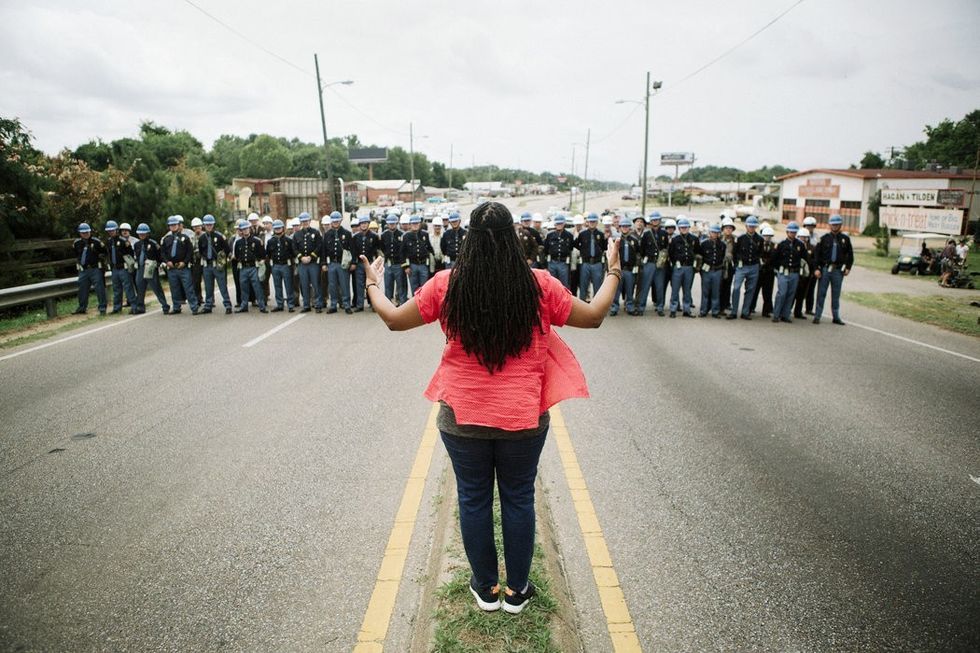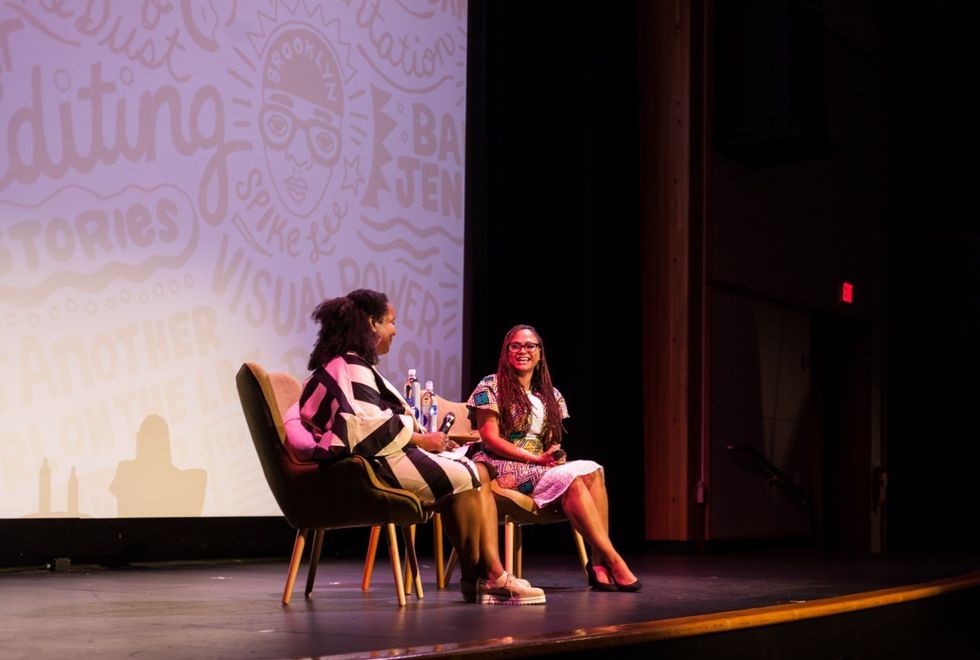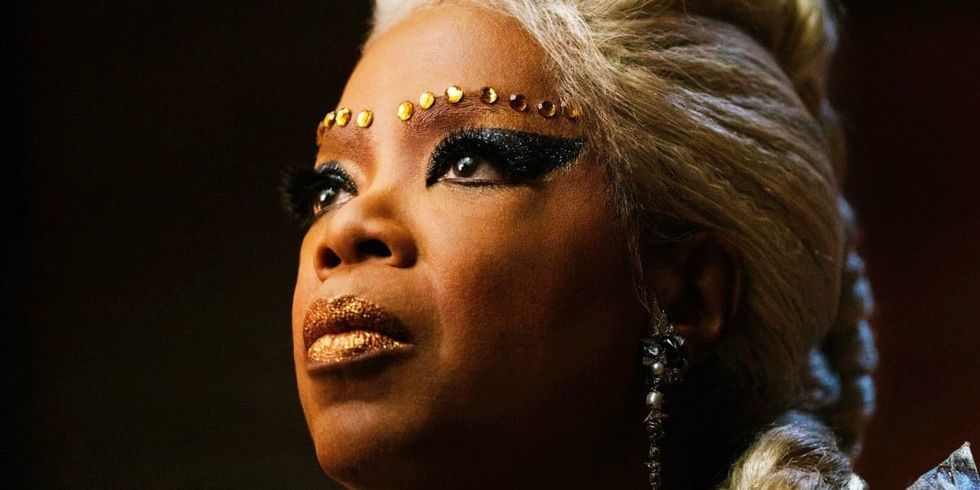Ava DuVernay on the 'Cheapest Film School You Can Do'
Ava DuVernay's speech at Blackstar Film Festival was like the State of the Union for black art in America.

There were applause breaks every few minutes. Everyone here at the Blackstar Film Festival loves Ava DuVernay and what she represents: black success on its own terms.
DuVernay's low-budget dramas (Middle of Nowhere, I Will Follow) and documentaries (My Mic Sounds Nice, This Is The Life) earned her a grassroots following that allowed her to make the leap to the big time with the Martin Luther King, Jr.-centered drama Selma, which puts a rogue's gallery of terrific character actors in the service of bringing a deeply traumatic period in history to life. Then came 13th, a scathing indictment of America's criminal justice system and the prison-industrial complex, which premiered as the opening night feature at the New York Film Festival and then went to Netflix.
"I liked independent film a lot, but I didn't see a lot of black people doing it."
DuVernay's appearance at Blackstar is like seeing the valedictorian come back to give a graduation speech after making it big. There's every reason to laud her: DuVernay has proven that black film can work in Hollywood in these uncertain times.

Raised in Compton by her mother with occasional trips to visit her father, DuVernay says of her roots: "It's just very black." The audience erupts in applause and laughter, knowing all too well what she means. "It's like 'hood and country' black. Black community, black skin... I was in the midst of something beautiful, but didn't have the tools to articulate how I felt."
DuVernay displays a strong sense of social justice in all of her work, inherent both in her low-budget dramas about the struggle of working black families and artists and her bigger projects like Selma and 13th.
"The LA Rebellion filmmakers had a cinematic vocabulary that went beyond the independent films I was seeing."
"Growing up in Compton, I saw a lot of things that weren't right," she said. "I wanted to try and figure out a way to do better. My Aunt Denise imbued in me a sense of social justice in art very early on. She took me to Amnesty International Concerts, got me listening to U2. I remember the first time I heard 'Pride (In The Name of Love)' and saw this white man from Ireland talking about Dr. King and thought, 'Wow there's power there.'"
"Art and activism got solidified very early on," she continued. "I started to get exposed to the LA Rebellion filmmakers, Haile (Gerima), Charles Burnett, and Julie Dash. They had a cinematic vocabulary that went beyond the independent films I was seeing. I liked independent film a lot; I liked the luxurious pace and the nuance of life and the little moments. But I didn't see a lot of black people doing it."

It took her years into her first major career in entertainment as a PR Coordinator before she ever thought about directing. "I didn't pick up a camera until I was 32. I was a PR Agent. I didn't go into filmmaking thinking it would be sexy I just had stories I wanted to tell…I just wanted people to see my story. I had to make the film about my friends. I knew the business. I'd been to all those junkets, I'd been in those rooms and all those red carpets, I'd been to the oscars. I knew what it was. It was just a carpet. In my head it didn't hold a mystique. When I started, I knew it was possible but I wasn't thinking about it. I just wanted to tell my story."
"I watched so many director's commentaries... I'm telling you it's the cheapest film school you can do."
And how did she do that without so much as a day spent in film school?
"How did I train as a filmmaker? Wow…no one's asked me that question. DVD Commentaries. Q and As like this. In LA, you can't walk two feet without getting hit by a Q and A. I read books on screenwriting. I was on sets and traveling with directors as their publicists. When you're with a director on a junket…I would hear these directors talk about their work. I would be on set where I could watch them direct. I was able to watch Spielberg direct, watch Michael Mann direct; I would see there things that I would do things I'd never do. And there were the director's commentaries, I'm telling you it's the cheapest film school you can do. Imagine this: your favorite movie. The director's going to sit down with you, one on one and walk you through their movie, what they did, what they were thinking about, how that shot came to be—I mean, it's gold for people who wanna learn what they're doing. I watched so many director's commentaries."
When DuVernay did her own first director's commentary, she recalls, "I was so shook. I wrote out what I was gonna say, I had notes, and the guy who was directing it said 'Umm…can you not read the notes…can you make it sound a little more like you actually directed the film?'"
The moderator of the discussion, Maori Karmael Holmes, says of her early work promoting her own films that she felt like a rapper hustling with mixtapes on street corners. DuVernay responds effusively.
"I enjoy meeting people," she says. "Someone's gonna come out on their Saturday, take hard earned money, that they went to work for and you're gonna spend it to see my movie? That's why I turned up the lights. I was out there on the streets telling people to come see my movie. I was trying to move people off the third street promenade. In the lobby of the movie theatre asking people what they were coming to see [and answering] 'No, you don't wanna see that, come see my movie.'"

Holmes jumps in: "It's you and it's Oprah. Everyone's coming!" "
DuVernay answers, "Well, I made it so that people could see this little brown girl as the hero of the whole universe. Not America, not the world. This little sister is hopping planets. She is flying. In her jeans and T-shirt! She doesn't have superpowers. She's just herself and she's able to harness the goodness of herself is enough to overpower darkness." Noting that "I usually make movies about people talking in rooms I don't make movies about people flying," she recalls that when the highest ranking black Disney executive, Tendo Nagenda, asked her to do the project, she hesitated. His response? "He just said 'Imagine the worlds you can build.' 'Build Worlds?' And he's like 'Yes! Whole planets. You decide what they look like. You decide what people wear. You decide what they say. Worlds with your vision! Can you imagine?'"
That's when DuVernay said yes, adding "And I don't know friggin know how I did it. It's nuts! Literally building four planets, and it looks like it came from someone who grew up half hood and half country. I think they're beautiful. It has a lot to do with blackness and being of colour and womanhood. That was the balancing act. We're still cutting but I'm really happy with what it is."












